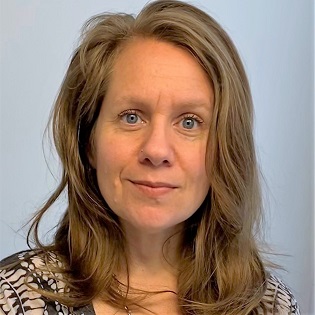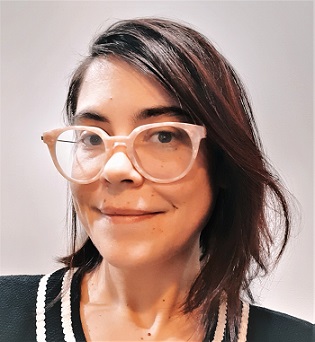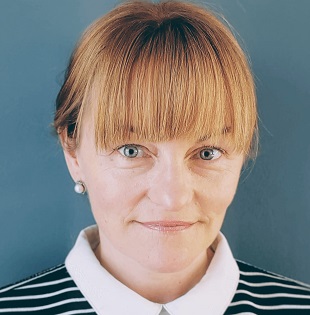|
March 2021
AutomatedBuildings.com
|
[an error occurred while processing this directive]
(Click
Message to Learn More)
|
Women of Cimetrics: How We Got Here and Where We’re Going
Let’s meet some of the amazing women of Cimetrics and learn what
they do for the company, their experiences as women in technology, how they got
to where they are, and what advice they have.
|
 Cimetrics is a
30-year world leader and innovator in the field of physical world analytics and
is a supplier of cybersecurity and networking technology Cimetrics is a
30-year world leader and innovator in the field of physical world analytics and
is a supplier of cybersecurity and networking technology
|
Cimetrics is a
30-year world leader and innovator in the field of physical world analytics and
is a supplier of cybersecurity and networking technology for automation systems
in buildings and facilities. Cimetrics’ building analytics solution, Analytika, is a cloud-based
platform that identifies opportunities to reduce energy consumption, improve
tenant health and comfort, manage asset lifecycle, and address corporate
compliance.
Cimetrics has been a pioneer in attracting women to this industry.
It was one of the rare companies in this field with a woman COO and one of the
first companies to offer a flexible work arrangement for new mothers. It is not
surprising that these women have worked for Cimetrics for an average of 12
years!
Women comprised almost half of the total US labor force in 2019 and have
earned more than half of all professional degrees for several years. This is
quite a change from a few decades ago. In 1950, just over 30 percent of women
aged 16 to 64 worked outside the home, while over 80 percent of men in the same
age group did. While the percent of women in the workforce is equalizing, there
remains a disparity in the job distribution. As of 2015, less than 10% of
mechanical engineers identified as female. Similarly, at the management level,
only 10% of engineering managers identified as female.
This Women’s History Month and International Women’s Day (March 8th),
Cimetrics celebrates the women working for the company: Hadas Webb, Managing
Director of Analytics; Julianne Rhoads, Senior Analyst & Brand Ambassador;
and Svetlana Lyons, PMP, Project/Product Manager.
Let’s meet some of the amazing women of Cimetrics and learn what
they do for the company, their experiences as women in technology, how they got
to where they are, and what advice they have.
Hadas Webb, CEM, Managing Director of Analytics

1.
What do you do?
As Managing Director of Analytics, I have both client-facing
and team management responsibilities. As a team leader, one of my most
important tasks is to empower my team to succeed. This includes exploring
creative solutions, delegating, and instilling confidence to resolve conflict
and dive into unfamiliar territory, all while being mindful of the company’s
strategic vision and available resources.
I work with our account executives and senior analysts
to ensure we successfully meet client goals such energy
efficiency & resilience, reliability, wellness, occupant comfort, and
customer satisfaction. I collaborate with the software development team to plan
and integrate new Analytika products and analyst tools, with a focus on market
demand, cost and quality improvements, and alignment with corporate vision. I liaise with utility providers and government
organizations to promote initiatives and incentive programs that support new
and existing clients secure funding for energy efficiency projects.
Svetlana, Julianne and I work together on our
Analytika marketing efforts to develop and distribute content through industry
publications, partner organizations, and social media, to submit nominations on
behalf of Cimetrics and its clients for industry awards, and to promote and deliver
conference and webinar presentations.
2.
What was the one most
influential factor that led you to your current role?
I am a leader because another woman leader saw a
leader in me before I did and pushed me beyond my comfort zone. As it turned
out, I have enjoyed every moment, learned new skills, and contributed in new
and rewarding ways to the growth of the company. It also taught me the importance
of building a network of strong women. Now that I am in a leadership position, I
hope to inspire other women to see the talent that lies within them. I’m a
chapter Lead for the Council on Women in
Energy and Environmental Leadership (CWEEL), a division of the Association
of Energy Engineers (AEE) that supports the role of women in the energy and
environmental industries. I’m a member of Women in Climate Tech, which aims to
empower and amplify the voices of women and non-binary individuals in the
field. Through the New England Women in Energy
and the Environment (NEWIEE), I participated in a mentorship program with a
senior leader, which provided me with tools and inspiration to continue to
improve.
3.
What do you like most
about your job?
I’m an engineer at heart so I’m passionate about
bringing concepts and ideas to fruition. In my days as a mechanical engineer,
that meant building and improving tangible items. As a manager, it means
launching and evaluating programs, improving processes and workflows, and
taking an analytical approach to guide operational decisions and project
assessment.
Bonus question: What advice do you have about raising the next
generation of engineers and leaders?
As a parent of two boys, I believe strongly that we
need to teach boys the value of qualities that were traditionally considered
female traits, such as empathy and communication, just as much as we need to
teach girls the skills that were traditional considered male. Combining
technical prowess with moving messaging is a powerful path for engaging clients
and building passionate teams.
The COVID-19 pandemic has taught us all that there are
times in life when we will need to make difficult decisions for ourselves and
our families when there is no right answer. This underscores the importance of
surrounding yourself with people that are kind and supportive, and keeping an
open line of communication with both yourself and your tribe about your values
and priorities. I haven’t read a book in almost a year, but I’ve come close to
mastering origami animals with my son, and did more professional public
speaking (from the comfort of my home office!) than in any other time in my
life.
Finally, we should encourage the next generation of
engineers and leaders to speak with their own voices, embrace their unique
backgrounds, and use their experiences to their advantage. For example, I grew
up in NYC and haven’t managed to entirely shake my accent. While I’m no Jimmy
Durante, I’ve been told that my voice is instantly recognizable.
See if you can detect Hadas’s Queens NY dialect in these recordings:
·
Association
of Energy Engineers (AEE) New England presentation on Energy Analytics,
December 2020
·
EnergyMatters2U
podcast guest, October 2020
Julianne Rhoads, CEM, Senior Analyst & Brand Ambassador

https://www.linkedin.com/in/julianne-rhoads-82044116/
1.
What do you do?
As a data analyst I interpret data from building
automation systems by utilizing remote continuous building monitoring and
analysis software. A remote continuous building monitoring service gathers
information from thousands of points (sensors, actuators and valves) throughout
the HVAC system in a facility and provides expert analysis and prioritized
recommendations for reducing building energy consumption and improving
equipment operations without having to step foot in a mechanical room. I
interpret and present these findings on an ongoing basis to help facilities
reduce energy, improve equipment reliability, and better manage resources. I am
responsible for energy analysis and reporting on over 5 million square feet of
facilities in the higher education, healthcare, and pharmaceutical research
sectors throughout the world.
I am also the Brand Ambassador for Cimetrics, and in
this role I promote products & services and implement marketing campaigns
to raise brand awareness and increase sales. I have presented on the topics of
data analytics & fault detection and predictive maintenance at conferences
held by the International Institute for Sustainable Laboratories (I2SL) as well
as at the Association of Energy Engineers (AEE).
Want to learn how to see into the future? Find out how
I turn data into a crystal ball in the following recording:
·
Webinar:
Data Analytics & Predictive Maintenance in HVAC Systems - YouTube
2.
What was the one most
influential factor that led you to your current role?
I began my career as an energy engineer in the building
automation and HVAC field, where I audited large facilities with complex
systems and thousands of pieces of equipment. The vast amount of data available
from Building Automation Systems, weather and utility data, and audit and data
logger data presented an opportunity for me to transition from energy
engineering to data analytics and utilize real-time analytics performed by
powerful Automatic Fault Detection and Diagnostics (AFDD) software. I felt the
need to adjust my career path toward data analytics and become familiar with
this emerging field.
The projects I took part in while attending college
also opened my eyes to the world of data. Several projects inspired me to work
in data and predictive analytics, including analyzing pedagogical statistical
data as part of my research assistantship, modeling a solar-powered house for
the U.S. DOE Solar Decathlon, or even designing a tiny passive solar house in
Huanchay, Peru. Opportunities for optimization, weather and building modeling
were everywhere.
Read about my recent VR trip to Peru in the following
article:
·
https://www.analytika.com/building-analytics-then-and-now/
3.
What do you like most
about your job?
I like that I will never get bored in this field, and
there will always be plenty more to learn! There are constant changes in BAS
security, utilizing machine-learning in data science and predictive analytics,
the standardization of semantic data models to streamline working with devices
from the IoT, etc. that excite and challenge me every day to learn from peers
and at conferences, to take online courses, and to never settle for the status
quo.
As an analyst I enjoy the technical aspects of my job,
but also engaging with my customers and providing a lens through which data
findings can be interpreted and acted upon, to make facilities personnel’s jobs
easier, tenants more comfortable and safe, and save real electricity and
natural gas. When I took my fundamentals of engineering exam in the state of
Massachusetts, I went into the test thinking I eventually wanted my
Professional Engineer license to prove myself to my colleagues and customers as
a badge of honor. Before the test began, we were all asked to write a
statement, the Engineer’s creed, and sign our name. I remember getting
emotional and the hairs standing up on my arms when I read and wrote the
statement vowing “to place service before profit, the honor and standing of the
profession before personal advantage, and the public welfare above all other
considerations.” As I read this, I realized the responsibility and
accountability I had as an engineer. What truly motivates me now in my job is
my commitment to environmental stewardship, and the public welfare of my
customers and the tenants that breath the air every day that I help monitor.
Bonus question: What do you wish you would have known when you were a
young professional?
These are my 5 favorite pieces of advice to my
“younger self” that my mom and I presented at Wheaton
College’s Summit on Women in STEM in Norton, Massachusetts:
1.
Don’t lose confidence just because the “professional stretch” leaves
you with sore muscles. Remember: no pain, no gain. Those sore
muscles are helping you train for the next opportunity.
2.
Know the
difference between asking for help and being rescued. There is a difference between being a damsel in distress and
asking for help. Collaborating with others builds a reputation for problem
solving: simply allowing yourself to be rescued does not.
3.
Tough situations
and problematic assignments build a richer network and strong
foundation of valuable experiences. You
set yourself apart from the crowd when you take on the tough jobs.
4.
A crisis is a terrible
thing to waste. Don’t just survive it —
use it to learn, teach and grow. The most valuable life lessons often come
by working your way through the hardest situations.
5.
Be bold, embrace
change and be a lifelong learner. This is
particularly important for people at all life stages. The world is changing
fast and if you do not keep up, you will be left behind. Keep your skills
current, and never stop learning.
Svetlana Lyons, PMP, Project/Product Manager

https://www.linkedin.com/in/svetlanalyons/
1.
What do you do?
As a Project Manager at Cimetrics I wear many hats - I
work for both the product and Analytika side of the business.
On the product side, I manage a team of engineers
ensuring the projects stay on task, utilize agile practices, helping team
members achieve their goals which align with the strategic business objectives.
This role includes product marketing, documentation writing and digital
marketing.
On the Analytika team, I’m responsible for finding an
optimal solution for each project to read data out of the customers’ systems.
Additionally, I manage social media channels, websites and their content for
the whole company.
2.
What was the one most
influential factor that led you to your current role?
Working with people and technology is the major factor
for me. I started as a high-school English teacher after obtaining a master’s
degree in Social Science. But after moving to the USA to one of the most
technological cities – Seattle – it was hard not to catch the technology bug.
My friend from Microsoft - first person to become a BACnet Testing Laboratory tester inspired
me to pursue studies in networking. After completing networking certification
and internship in Quality Assurance under his lead in the BACnet Testing
Laboratory in Boston I was hired by Cimetrics. Starting as an Interoperability
Lab Manager I realized that being in the lab all day long is not my cup of tea
and gradually moved into a more people-oriented Product Management role and
then started doing digital marketing, content management for my company, opened
social media channels. So, I found the profession that encompasses soft and
hard skills, and as a bonus, I enjoy reinventing myself.
3.
What do you like most
about your job?
It is dynamic and never boring. I love my job because
it is never the same and it is a combination of technical and people skills. I
constantly learn new things and have to educate myself on different subjects.
For example, right now I am working on implementing the Secure Software
Development process for our SecuredByCimetrics
products. I am learning about an industry new initiative Managed BACnet - vendor-neutral solution to the cybersecurity challenge.
Bonus question: How does a non-technical person survive in a
technical field?
In my company where everyone is an engineer, computer
scientist or has a PHD in Physics it is hard not to feel intimidated. But what
I found out is that if you spend time on learning the concept and details about
the business that you are working in, it would be much easier to understand
what is required and how you can help.
Some tips:
1.
Don't be afraid to ask
questions even if they sound silly to you. All my
career I find out that people are usually friendly and explain things without
looking down at you.
2.
Have a working understanding
of technology and learn the basics of the field you
are in, learn the lingo.
3.
As a project/product manager
you are a part of a team of experts. They have
technical expertise, and it is your job to remove obstacles on their road, help
resolve issues and move projects forward, pick up the skills which help to
advance your company business.
4. “Be curious, not judgmental.” - Walt Whitman. Have empathy, curiosity and a
cheerful attitude to life!
footer
[an error occurred while processing this directive]
[Click Banner To Learn More]
[Home Page] [The
Automator] [About] [Subscribe
] [Contact
Us]
 Cimetrics is a
30-year world leader and innovator in the field of physical world analytics and
is a supplier of cybersecurity and networking technology
Cimetrics is a
30-year world leader and innovator in the field of physical world analytics and
is a supplier of cybersecurity and networking technology


